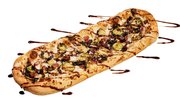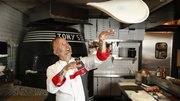Operations
Why Camile Thai Kitchen is going 'all in' on drones, robots
Camile Thai Kitchen founder and CEO Brody Sweeney discusses how lockdown restrictions led to a 50% increase in sales as well as why he's investing in drones and robots.
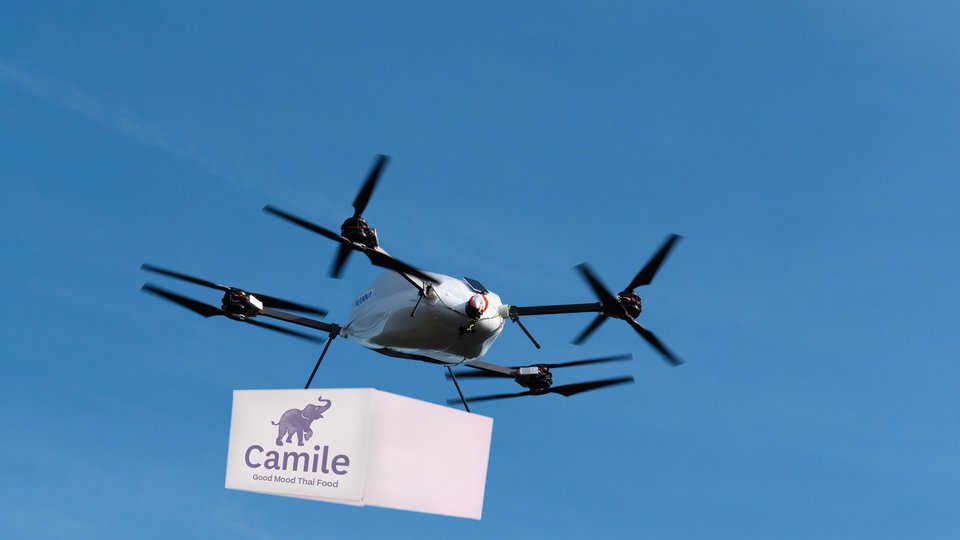
October 2, 2020 by Cherryh Cansler — Editor, FastCasual.com
When we first wrote about delivery via drone in 2016, the concept was more of a novelty than anything else. That particular drone left a Reno, Nevada-based 7-Eleven with a box of Slurpees, coffee and doughnuts to make a 1-mile delivery as part of advanced research toward integrating drones into the National Airspace System.
Four years later, drone delivery isn't such a pie (or doughut) in the sky concept.
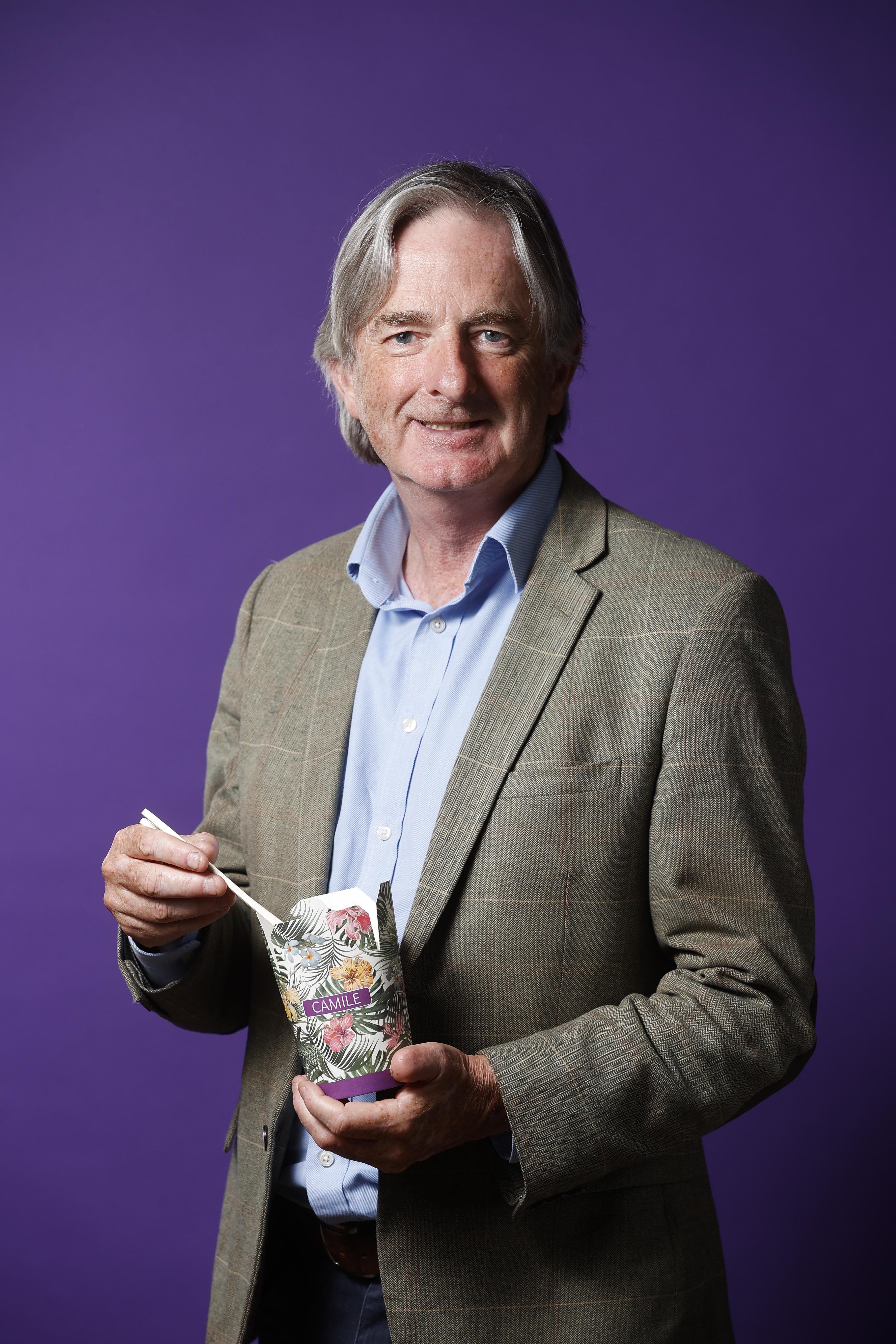 |
| Camile Thai Kitchen Founder and CEO Brody Sweeney is investing in drones and robots. |
"We are going all-in on drone delivery, planning to have customers receiving their food by air in the next year at the latest within Ireland, and shortly after that in the U.K.," said Brody Sweeney, founder and CEO Camile Thai Kitchen, a delivery-focused chain in London with 35 outlets and 12 franchise partners. "Our drone delivery is being provided in partnership with well-known drone delivery startup Manna with whom we successfully trialed this year."
When the service is live, according to Sweeney, customers may select a square on Google Maps in order to choose their location. After cooking and packaging the food, employees will load it into a drone, which will take off to about 400 feet at 50 miles per hour.
"A text message lets the customer know that the drone has arrived, at which point it drops to 40 feet, and the food is lowered on a piece of biodegradable string into the square selected," Sweeney told Fast Casual. "The technology works perfectly and it is cheaper, faster and of course far more environmentally friendly, than traditional delivery methods."
A drone delivery costs about half that of a delivery driver, has no emissions and can fly in 90% of weather conditions and, Sweeney said.
"A food delivery for two people is the perfect weight for a drone delivery," he said. "Drones could complete around 80% of the deliveries currently made by traditional transport. Londoners can expect the service in around two years, likely starting in the relatively easier to serve suburbs followed by more central locations.
"At Camile, we are confident that drones in the sky will quickly become commonplace, and once the logistics of aviation clearance are automated, other authorities will quickly follow suit."
Drone technology isn't the only way Camile's is looking toward the future. It's also investing in robotics, which Sweeney explained in detail to Fast Casual. See the rest of the interview below.
Q. Do you have actual dine-in locations? If so, how many?
A.Before the pandemic we were already 75% for off premises consumption, most of that being home delivered and ordered through our proprietary app. We have 35 outlets across Ireland and the U.K., including six in London.
Being suburban based and delivery-focused was really a winning formula for Camile. We feel very fortunate that during the lockdown there was a high demand for our product and home delivery service, especially in London where we saw a 50% increase in like for like sales.
Due to the pandemic, we decided to adapt our franchising strategy and offer flexible options for business owners with well located but underused commercial kitchens (like restaurants, bars and hotels) in regional towns. This allowed new franchisees who were forced to shut down their restaurant, bar or hotel dine-in premises due to restrictions to survive. The first recently opened in Sligo, in the west of Ireland and cost the franchise owner €40,000 as opposed to the €300,000 required for a conventional Camile franchise. We are expecting to open five or six such outlets in the medium term.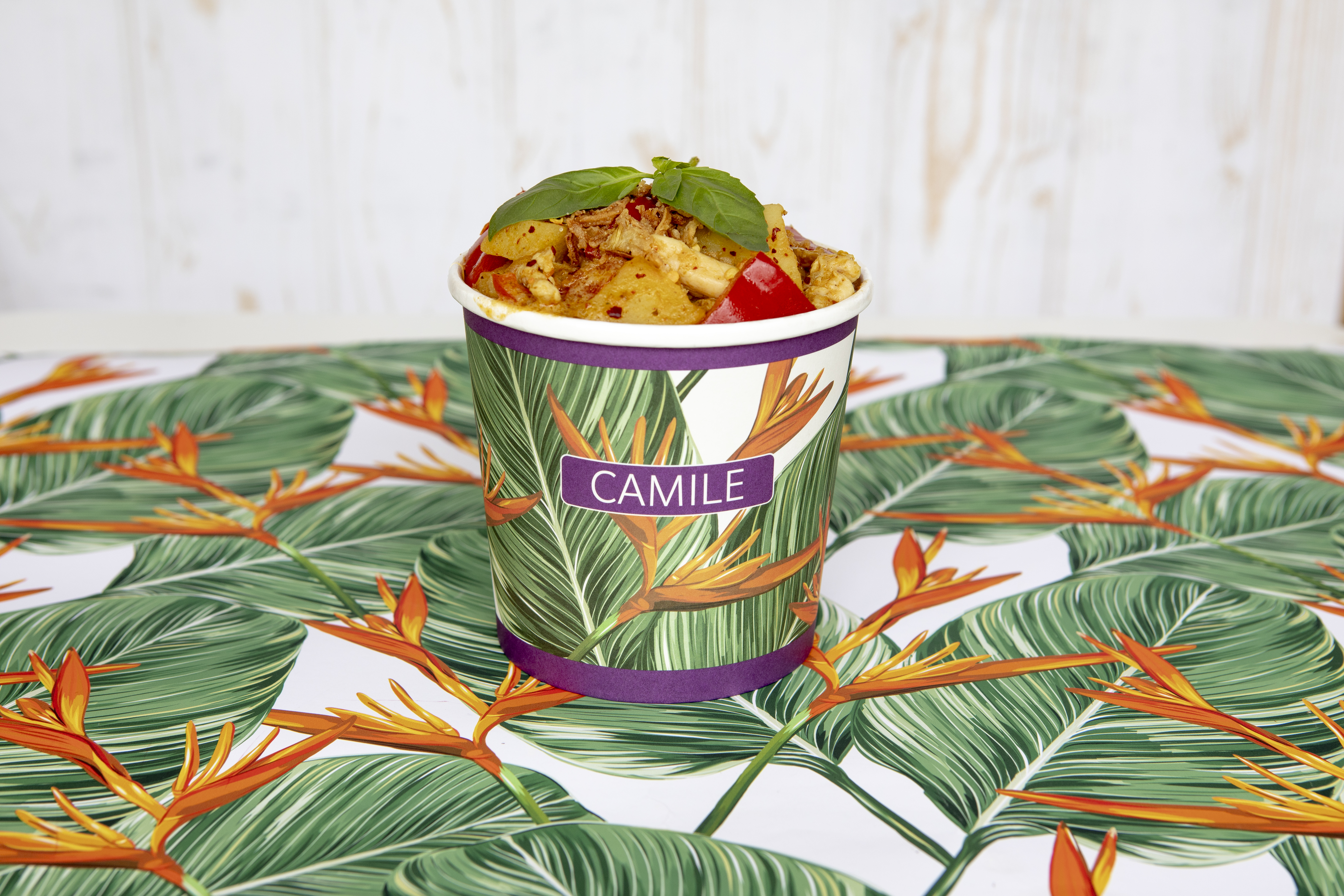
2. Why are you interested in robotics?
A. Camile is bringing robotics into the cooking process to ensure even more automation from the point of an order. If you consider the process of wok cooking, it is very repetitive and easy to replicate mechanically. Camile is working with engineering design consultants and manufacturers in China and Korea, and we plan on replacing our manual wok cookers with a semi-automatic version and are trailing a version of a mechanical wok.
The wok consists of a heated, rotating drum, which allows the ingredients to cook, a rotating mechanism to dispense the cooked food and a further rotation which switches the drum into a self cleaning mode. Adopting this tech means we will be able to redeploy staff away from cooklines into other task areas, such as operations, hub office or our central production kitchen.
Leading in this competitive space means working to redefine the intersection between people and technology. In a restaurant kitchen, it's all about economy of motion on the line. Speed is everything — whether that's chopping an onion or flicking a sauté pan — chefs will always try to make sure that every second counts. Camile is adopting this tech to manage the logistics of its kitchens and help it to keep up with larger-than-average delivery order volumes.
If you take into account our mainly delivery-based model, robotics is an absolute win-win for us in terms of efficiency.
3. Will customers be able to watch the food being cooked by robots or is it a cloud kitchen?
A. In our case, we will be deploying robotics in our delivery outlets, which are consumer facing, and customers will be able to see them in action. Our delivery-focused, suburban model has been key to our success this year.
Q. When will your first parking lot restaurants open? Will they open in the U.S? Do you have a deal yet with Tesco or any other companies to launch them?
A. We have already opened two parking lot Camile's in Tesco sites in Ireland with two more Tesco's to open in the near future.
Q. Who developed the menu for Camile?
A. Our menu is created by our team of talented chefs and creators, in alignment with certified nutritionists and overseen by our executive chef, Oliver Mueller. Our menu includes all the Thai classics and the calorie and macronutrient counts are lab-tested by a certified nutritionist. Camile is also on MyFitnessPal and can easily be added to the daily food intake by simply searching for "Camile Thai".
Q. Do you plan to sell the tech to any other restaurant brands or is this for Camile only?
A. There is a possibility that when we develop the Robotic cooker, that we may make this available to third parties.
Q. What were your sales in 2019?
A. Net annual sales for 2019 were just over €23,000,000.
Q. What are you on track to hit by 2020 (sales)?
A. London sales during the lockdown restrictions actually increased by 50%. This is a very fortunate situation to be in given the current climate and the difficulties faced by other restaurant owners. We are also on track to be opening many more new locations over the next 12 months. Sales will rise to +€30 million in 2020.
Q. How has COVID-19 affected them (sales)?
A. We were extremely fortunate to have had the right combination of locations and that our focus is on delivery. This helped us achieve incredible growth this year, but also has allowed us to really ramp up our technology strategy. The pandemic restrictions in the market also inspired us to come up with our new flexible franchising model for which we are already witnessing tremendous appetite for. For Camile, 2020 has brought with it many opportunities, which we are truly grateful for.
 ChatGPT
ChatGPT Grok
Grok Perplexity
Perplexity Claude
Claude
